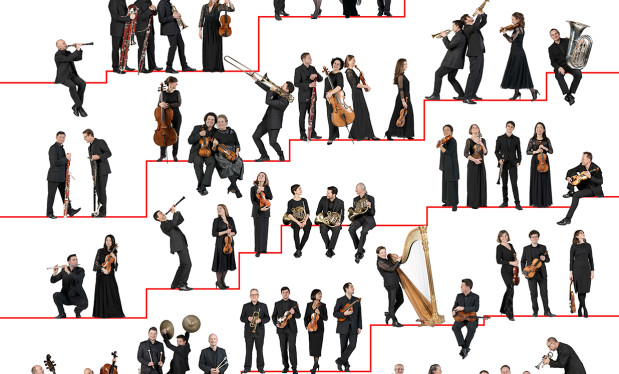NOSPR / Lyniv / Ovcharenko / The Music of Decline and Tragic Experience - NOSPR
NOSPR / Lyniv / Ovcharenko / The Music of Decline and Tragic Experience
While composing his Symphony No 9, Anton Bruckner was haunted by the premonition of his own impending death. He ardently wished to complete the work, yet the symbolic Ninth inspired a sense of dread as it was associated with Beethoven and the final contribution to his symphonic cycle. As his health was declining and strength, Bruckner turned his thoughts towards eternity and ‘the beloved God’ (‘dem lieben Gott’), to whom, in fact, he dedicated his final creative effort with these very words. The process was unusually protracted – Bruckner grappled with his last symphony from 1887 until 1896. With the awareness of his dwindling time, the composer’s desire to finish his spiritual testament became more pressing. Ultimately, however, he died on 11 October 1896, leaving the fourth movement in a fragmentary state. As with all unfinished masterworks, the Ninth has inspired attempts at reconstruction – most notably by Carragan, and by the team of Samale, Mazzuca, Phillips, and Cohrs. Still, what we will hear in the present concert is the version published by Bruckner’s post-war editor Leopold Nowak: a vision that ends with the radiant Adagio: Langsam, feierlich, the symphony’s third movement.
Bruckner is frequently discussed as a composer whose creative activity was misunderstood and how he was ostracised by Vienna’s conservative music establishment – a fate that also befell Sergei Bortkiewicz, born in Kharkiv in 1877. Today almost entirely forgotten, he is variously listed in numerous compendia and reference works as a Russian composer, as a pianist and composer of Russian origin who settled in Austria, or as a Ukrainian artist. In fact, Bortkiewicz was born into a noble family of Polish descent. Many nations thus lay partial claim to him – yet for each, he seems to remain somehow foreign... Over time, much of his compositional oeuvre has been lost or dispersed.
For many years, Bortkiewicz’s Piano Concerto No 2 in C minor for the left hand, composed around 1924, remained absent from the performance repertoire. The work was commissioned by Paul Wittgenstein – the same pianist for whom Ravel composed his Piano Concerto in D major – who had lost his right arm during the First World War. Wittgenstein performed the concerto numerous times with success and held the piece in high regard. However, as he held exclusive performance rights, the work fell entirely into obscurity following his death in 1961.
Bortkiewicz’s composition demonstrates masterful command of both orchestral and pianistic textures, despite its unconventional formal structure. Though cast in a single movement, the work is articulated in four distinct sections: Allegro dramatico – Allegretto – Allegro dramatico – Allegro vivo.
Andrzej Sułek
Everything you need to know before you come to the NOSPR – practical advice for those attending events
We kindly request that you familiarise yourself with the information concerning parking in the Culture Zone – important information about parking.
Upcoming events

JazzKLUB / Rudi Mahall's Almost Danish Quartet / Standards with a Playful Twist
Chamber Hall
Buy ticket













